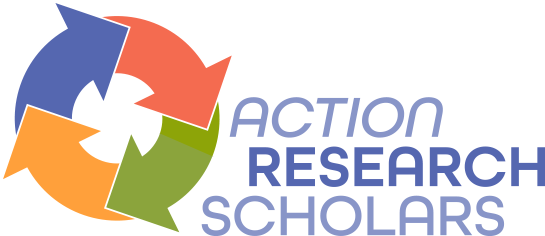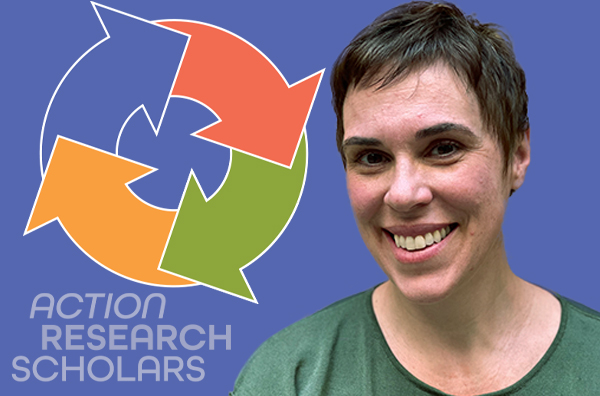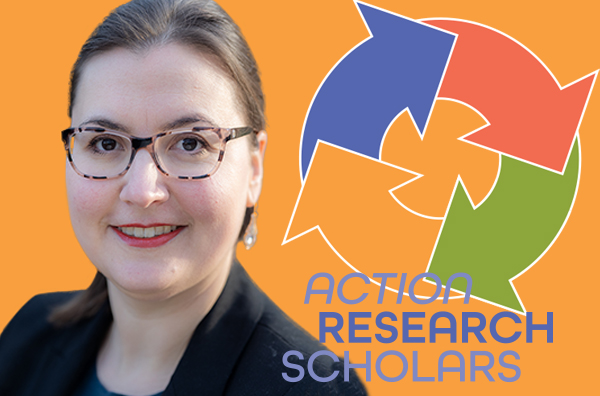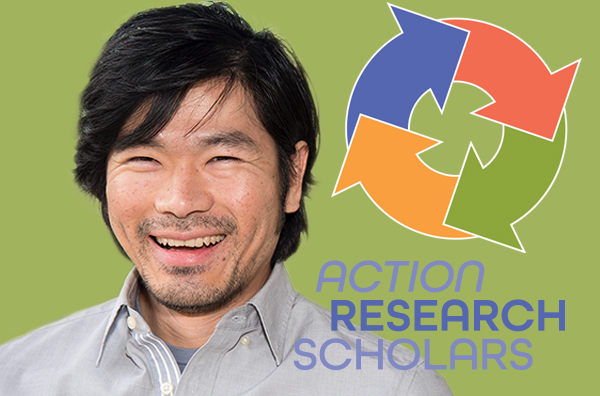CATE Action Research Scholars Program: A Bridge Between Teaching and Research
QUOTE Heading link
The Action Research Scholars program’s goal is to support instructors in developing skills to systematically interrogate their teaching practices.
text 1 Heading link

The first cohort of the CATE Janet Riddle Action Research Scholars program began this year-long program in Fall 2022 by completing workshops and developing their research projects on their teaching and the student learning experience in their courses. They collected data in Spring 2023 and all three Scholars are showcasing their research findings in the CATE Seminar Series this Fall, where they share the pedagogical and methodological implications of their work.
Charitianne Williams, Senior Lecturer in the English Department and Assistant Director at the UIC Writing Center, motivated to develop methods to assess how translingual pedagogy impacts student learning, created and tested a tool to assess student knowledge about writing as a discipline across courses and across the curriculum.
text block 2 Heading link

Lieke van Heumen, Clinical Associate Professor in the Department of Disability and Human Development, prompted by changes in course modality during and after the pandemic in her department, investigated what modality options are preferred by UIC students, including what works for their learning needs, for DHD101, a large general education course.
Yeow Siow, Clinical Associate Professor in the Department of Mechanical and Industrial Engineering, recognizing the disconnect between student learning outcomes and real-world demands, redesigned the assessment and grading system in his course and studied the impact that this fluency-based assessment system has on student motivation and engagement.
“How do I know I’m effective in my teaching?”
The Action Research Scholars program’s goal is to support instructors in developing skills to systematically interrogate their teaching practices. The CATE team leveraged their expertise in the field of the Scholarship of Teaching and Learning (SoTL), research design, and inclusive teaching to create a program that guides instructors step-by-step from research idea to data collection and analysis.
text 3 Heading link

During learning community meetings, scholars received targeted training from CATE staff and campus partners and were given structured time to apply what they learned. Scholars worked in project workbooks where they could “tag” CATE staff and peers to receive asynchronous feedback, and CATE staff also offered one-on-one consultations to provide individualized feedback. van Heumen expressed appreciation for this layered approach to her development: “The amount of individual support is so humongous. It’s just not like anything I’ve experienced at UIC as far as receiving mentorship, training, and support. And who doesn’t love that?”
“What I need to learn and grow is a safe space.”
In addition to connecting scholars with institutional resources that furthered their development in SoTL, the scholars described the regular meetings in the program as a space of belonging. Siow commented, “From the very first meeting, I felt like I belonged in this community. You’re always encouraging self-expression, any kind of questions, and you always have a positive spin to any problem at hand. That really helps me to just want to keep moving forward, keep engaging myself.”
Williams remarked on the ways that her fellow Scholars forged a community that not only helped move her research forward, but also became a space for collaboration and fun: “Creating this community of researchers helped me integrate research more fully into my professional life, because there were my colleagues at the university, we were informed about each other’s work and interested in each other’s work.”
text 4 Heading link

“SoTL is an integrated part of my scholarship.”
As their time in the program came to a close, the Scholars remarked on the intellectual and professional connections they had made between teaching and research. van Heumen came to understand how her scholarship in Disability Studies fits within the tradition of SoTL, and as a consequence can move this work forward more deliberately: “I’ve been doing this work unintentionally. I’m now actually equipped to do it, which I wasn’t a year ago, and that is very motivating.”
Siow spoke of his development as a scholarly instructor: “The whole process has been phenomenal in shaping me as an educator. It got me to think not just as a practitioner, but also as a researcher, how to approach my teaching.” He also drew direct lines between the skillset he gained through his participation in the Action Research Scholars Program and how he is collaborating with colleagues in the Mechanical and Industrial Engineering department on projects and grant proposals.
Williams described her increased confidence and capacity to engage in research with her Writing Center colleagues: “I’ve already started two other IRB protocols that have come out of other assessments out of the writing center. I was like, you know what? We should just turn this into a research project. We’ll be able to do more with this assessment project as a research project.”
text Heading link
Interested in joining the next cohort of Action Research Scholars?
The next offering of this program starts Fall 2024. The Call For Interest is due February 1, 2024 and Applications are due April 1, 2024. Please see the CATE website for more information and to fill out the Call for Interest form. If you have any questions, please contact the CATE team at teaching@uic.edu